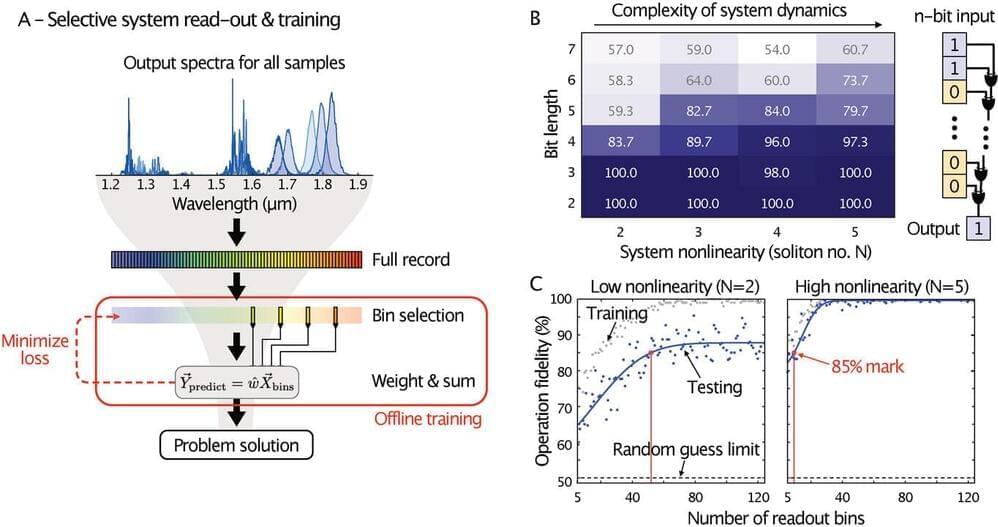Artificial intelligence is pivotal in advancing biotechnology and medical procedures, ranging from cancer diagnostics to the creation of new antibiotics. However, the ecological footprint of large-scale AI systems is substantial. For instance, training extensive language models like ChatGPT-3 requires several gigawatt-hours of energy—enough to power an average nuclear power plant at full capacity for several hours.
Prof. Mario Chemnitz and Dr. Bennet Fischer from Leibniz IPHT in Jena, in collaboration with their international team, have devised an innovative method to develop potentially energy-efficient computing systems that forego the need for extensive electronic infrastructure.
They harness the unique interactions of light waves within optical fibers to forge an advanced artificial learning system. Unlike traditional systems that rely on computer chips containing thousands of electronic components, their system uses a single optical fiber.










Comments are closed.